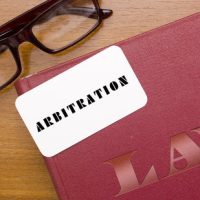Category Archives: Business Litigation

HOW DOES THE GARNISHMENT PROCESS WORK TO ENFORCE A JUDGMENT IN FLORIDA?
A writ of garnishment is a powerful legal tool that allows judgment creditors to collect debts by seizing assets belonging to a judgment debtor that are in the hands of a third-party. This process enables judgment creditors to recover outstanding judgments through third parties, such as banks or employers, who hold money or other… Read More »

When Are You Entitled to a Jury Trial in Federal and State Court?
Many clients believe they are entitled to a jury trial when they file or are defending a lawsuit in federal or state court. What they often do not realize, however, is how significantly the right to a jury trial has eroded through contractual waivers, alternative dispute resolution clauses, and claims that seek equitable remedies…. Read More »

How Have a Party’s Discovery Obligations Changed Under the Recent Amendments and What Remedies Are Now Available When Filing a Discovery Motion?
Effective as of January 1, 2025, the Florida Supreme Court adopted significant amendments to the Florida Rules of Civil Procedure, including material changes to Rule 1.280 and Rule 1.380. In amending Rule 1.280, the Court adopted much of Federal Rule of Civil Procedure 26, including: 1) each party now has a duty to serve… Read More »

Florida’s New “Proportionality” Standard for Civil Discovery: It’s a Game Changer
For years, many attorneys and judges have queried when the Florida Supreme Court would adopt the civil discovery “proportionality” standard that the federal courts adopted in 2015. Some attorneys and judges favored the Florida courts adopting the federal proportionality standard; others were against it. Effective as of January 1, 2025, the Florida Supreme Court… Read More »

RKJ Prevails in Bench Trial to Enforce Private Beach Easement on Palm Beach
The firm recently prevailed in a bench trial on behalf of several homeowners to enforce a private beach easement in the Town of Palm Beach. The firm’s clients are owners of residences located within the Esplanade Estates section of the Town of Palm Beach. They hold an easement that runs from North Ocean Boulevard… Read More »

“I Feel the Need for Speed!” – the Florida Supreme Court Abrogates the “At Issue” Rule and Declares Trial Continuances Should Rarely be Granted
The Florida Supreme Court recently adopted various new amendments to the Florida Rules of Civil Procedure that become effective on January 1, 2025. These amendments overhaul how trial courts will manage the cases before them, the speed in which cases will proceed through the judicial process, and material changes to the discovery process, including… Read More »

Tear Up All Non-Compete Agreements? Not so Fast
On April 23, 2024, the Federal Trade Commission (“FTC”) announced its Non-Compete Clause Rule (“Non-Compete Rule”)[1] which prohibits parties from both entering new non-competition agreements and enforcing existing non-competition agreements with limited exception.[2] As the rule was published in the Federal Register on May 7, 2024, the Non-Compete Rule has an effective date of… Read More »

Waiver of Arbitration Rights Under Florida Law
Arbitration is a form of alternative dispute resolution used to handle disputes between parties outside the court system. In this process, the parties have the chance to present evidence to an arbitrator or sometimes a panel of arbitrators if more than one arbitrator is used; an arbitrator is a neutral third-party who serves a… Read More »

New Federal Rule Prohibits Enforcement of Non-Compete Agreements
Since January 2023, the Federal Trade Commission (“FTC”) has considered adopting a new nationwide rule that would prohibit employers from not only entering but also enforcing non-compete agreements with employees (subject to certain exceptions, of course). According to the FTC, non-compete agreements negatively affect competition by hindering the ability of workers t change jobs… Read More »

What to Do When a Shareholder of A Florida Corporation Files for Dissolution
While there can be an unlimited number of shareholders of any given corporation, all shareholders are not going to have the same opinions, thoughts, or feelings on how the corporation should be run. Inevitably, this may lead to shareholder disputes. If a shareholder so strongly disagrees with how the corporation is being run, there… Read More »
